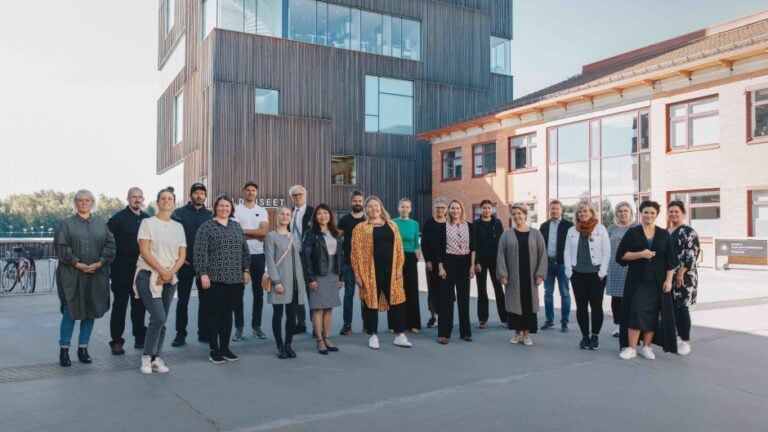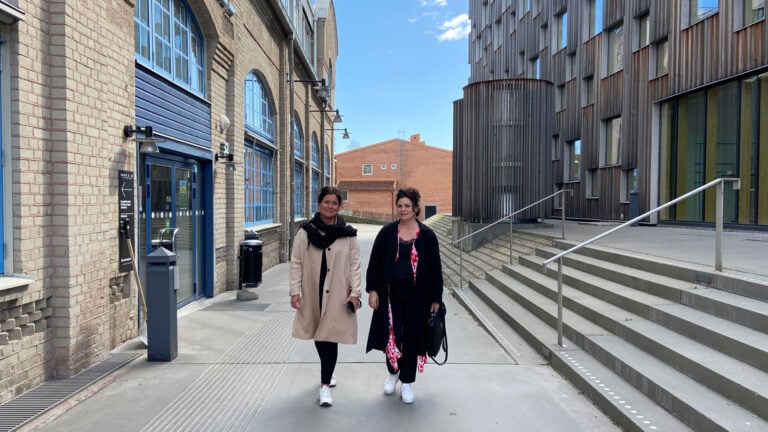In the early 2000s, the concept of social media emerged as a new buzz word. Even though the internet and various software tools that could help us communicate, interact, build and maintain relationships and share information had clearly been available long before then.
As new technologies such as social media were developed and explored at the turn of the millennium, more people discovered the power of technology to shape a company's brand. And what's more - to do so with a personal touch. Today, the ability to be personal is one of social media's strengths. But using social media and exploring the way that suits your business and your circumstances takes time. They are a challenge because we don't always see social media work as work. This is despite the emergence of new professions such as influencers and social media managers that highlight the importance and benefits of working with social media.
I don't have time for social media, I have a job to do!
This is a not uncommon reaction when someone is asked to prioritise time to create a communications plan or social media strategy. Not to mention following the...
Under coronapandemin many companies have chosen to involve social media to an even greater extent than before. This ranges from, for example:
- the meetings industry has switched to using facebook to stream meetings and other events
- the farm shop that has converted to carry out its cheese and wine tasting online
- the event company that instead of building fairs creates digital support for taste experiences
- the soap producer inviting digitally to follow the production or to explore new ways of using the products
The impact of social media on companies' ability to transform has been significant.
Reflection questions: on social media, relationships and branding
In this task we will leave the technical aspects aside. The primary focus is on the objectives of your social media presence and how you can act to achieve them and start taking your first steps.
- What would you like to achieve with your social media presence? Do you want to keep tabs on your competitors, find ways to engage with them, attract new customers, entertain existing ones or what is your purpose?
- The next question is about where these actors are. Are they the ones you want to reach on instagram, linkedin, facebook or any other social media channel?
Once you have defined your purpose and identified the context you want to be part of, it's about understanding what the rules of the game are.
What is the language and jargon like? Do you communicate a lot or a little? Are people generous or stingy with acknowledgements, comments, shares and likes? And if so, what does that mean for your ability to take space? How do you want to be perceived on social media, the polite and generous one or someone else?
Using social media is sometimes perceived as time-consuming. One way to reduce time is to make a plan for how you want to communicate and to think through some basic questions. By having a plan for what, how and when you want to communicate, time can be saved. As well as it is time efficient to prepare several posts at the same time and then time them so that the week's posts are published one by one automatically. Here are some questions to think about when developing a plan.
- How often can and should you post?
- Can or should they follow different themes?
- Are they aimed at the same target group each time or can or should they be varied?
- What hashtags are used in your field?
- Which ones do you want to add to expand it and hopefully reach new audiences?
- Who do you collaborate with on your social channels and how can or should you make them visible?
Something else that is often highlighted as time-consuming concerns comments and their handling. Remember that the time you spend responding to comments always generates something back to you. The more activity you have on your account, the more visibility you will have through social media algorithms.
Social media offers the opportunity to generously acknowledge other stakeholders and thereby nurture collaborations and important relationships.
Comment:
Hopefully, you now know more about what you want to achieve, where to achieve it and what applies there. You've also started to chisel out a plan that can help you publish consistently, to the right audience and at the right time.
The next step is to make your first impressions, such as making posts and leaving comments. Don't forget that you are actually in control, you are in charge of your platform and it can take time to find its shape. It's all about practice and listening. And what's the worst that can happen? A post can be corrected and deleted one day later - if you find it didn't turn out the way you intended. The important thing is to get started.
Finally, who takes care of your social media? An important question is who in your company will be responsible for social media use. Is there one dedicated person or are there several of you sharing the task? Depending on your answer, what challenges and opportunities do you see with this choice?






